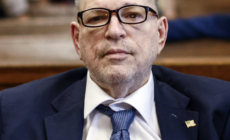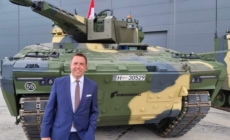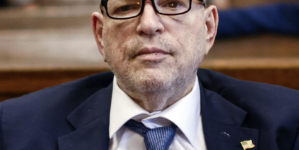-
Why ‘Ghost Jobs’ Are a Bad Idea For Companies, According to Experts - 19 mins ago
-
Cat in Texas weighing 26 pounds is placed on diet after animal rescuers step in - 23 mins ago
-
Meghan Markle steps up Hollywood networking with Kimberly Williams-Paisley lunch, reported Hamptons trip - 28 mins ago
-
Rangers vs. Blue Jays Highlights | MLB on FOX - 41 mins ago
-
Harvey Weinstein’s Medical Condition Takes Massive Turn - about 1 hour ago
-
Dodgers’ Freddie Freeman scratched, returning to Los Angeles to be with family - about 1 hour ago
-
Missing Tanker Plane Fighting Oregon Wildfire Found, Pilot Dead - 2 hours ago
-
Reds vs. Rays Highlights | MLB on FOX - 2 hours ago
-
F1 News: Red Bull Hit With Unexpected Fines at Belgian Grand Prix - 2 hours ago
-
Interview with Rheinmetall Hungary CEO, Paul Walf - 3 hours ago
Szijjarto: Hungary not to participate in activities increasing NATO role in Ukraine
Hungary opposes an increase in NATO’s coordination role in weapons deliveries to Ukraine and training Ukrainian soldiers, and will not participate in the planning, implementation or financing of such activities, the foreign minister said on Wednesday.
The ministry cited Peter Szijjarto as telling a press conference during a break in a NATO foreign ministers’ council meeting that the government’s main goal was to protect Hungary from the war in Ukraine. As a result, it considers NATO’s former decision very important under which the organisation is not part of the armed conflict and would do everything to avoid a direct confrontation with Russia, he added.
He welcomed the fact that all previous proposals within NATO had respected these red lines and warned that the latest proposal would bring the organisation closer to war.
When the proposal was discussed, Hungary asked the other member states to consider that coordination of military support had been done so far without the involvement of the alliance, he said.
“Since the majority of member states, I could say 31 of them, agree with having to increase NATO’s coordination role in these two areas … planning work will now get started,” he said.
“But we have made it clear that Hungary does not want to and will not participate in this,” Szijjarto said. “Hungary will therefore not participate even in the planning phase,” he added.
“We will not participate in the consequent tasks and actions, and we will not provide financial support, either,” he said.
“No activity can take place on the territory of Hungary … which results from an increase in NATO’s coordination role in training and weapons deliveries,” he added.
He said the government maintained the position that it would not participate in weapons deliveries and would not send soldiers to the war in Ukraine. “No Hungarian soldier will participate in such tasks and the monies of Hungarian taxpayers must not be used for such purposes,” he added.
Since Ukraine will not be invited to NATO’s Washington summit, he described the proposal as a substitute action, adding that it was “very dangerous and expensive”.
“This is why I made Hungary’s position clear once again,” he said. “We are concerned that such proposals only bring NATO closer to the war than ever before, and we do not agree with increasing NATO’s coordination role either in the training of Ukrainian soldiers or in the delivery of weapons, so Hungary will not participate in it,” he reiterated.
He said the strategy that Ukraine would achieve significant success on the battlefield thanks to western weapons deliveries had clearly failed, and it only resulted in an increase in the number of military equipment in destructive warfare.
He added that Hungary was a reliable and important ally, as proven by an increase in military spending to above 2 percent of GDP last year, which he said had only been achieved by eight member states. Hungary also fares well in spending 20 percent of its military budget on developments, he added.
‘High time central Europe delegated NATO secretary general’
“No central or eastern European member country has delegated a secretary general to NATO in its entire history, therefore it would be high time, with special regard to the fact that the main security challenge comes from that direction,” Szijjarto said. The foreign ministry quoted the minister as noting Hungary’s support in strengthening NATO’s eastern winds, and expressing his hope that “it would also be reflected in the person of the next secretary general”.
Szijjarto said “a large part of central and eastern European countries have been NATO members for twenty or twenty-five years” adding that it was time his proposal concerning the next secretary general “should be given weight”. He said it was “clear” that “a significant part of the members support outgoing Dutch PM Mark Rutte for the post”.
“But Hungary will not follow suit, because NATO is a defence alliance in which leaders must be trusted at the highest level,” Szijjarto said.
“We from the Hungarian side cannot trust a man not at the highest but at any level, who had earlier spoken about bringing Hungary to its knees … I think it is clear to everybody,” he said.
Szijjarto said some member states were hesitant, adding that “Romanian President Klaus Iohannis’s nomination has created a new situation”.
“We are glad to see a central European nominee,” the minister added.
Source link































